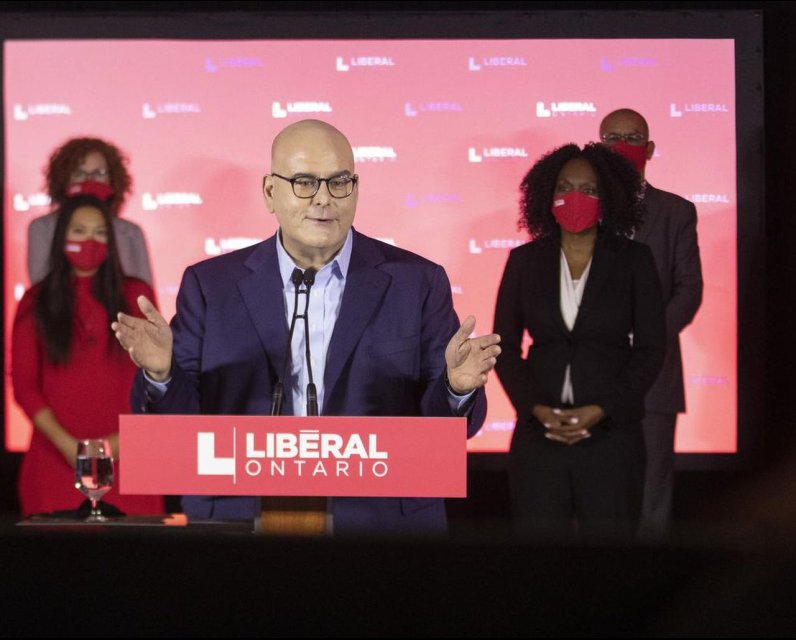Warning message
- Last import of users from Drupal Production environment ran more than 7 days ago. Import users by accessing /admin/config/live-importer/drupal-run
- Last import of nodes from Drupal Production environment ran more than 7 days ago. Import nodes by accessing /admin/config/live-importer/drupal-run
Unpublished Opinions
Stefan Klietsch grew up in the Ottawa Valley outside the town of Renfrew. He later studied Political Science at the University of Ottawa, with a Minor in Religious Studies. He ran as a candidate for Member of Parliament for Renfrew-Nipissing-Pembroke three times from 2015 to 2021. He is currently a Master of Arts student in Political Science at the University of Carleton.
Ontario Liberal Leader probably sincere in electoral reform pledge - whether that pledge is wise or not

A number of cynics of politics might feel a sense of deja vu in response to remarks by Liberal Party of Ontario Leader Steven Del Ducca at that party's Annual General Meeting in October. Once again, after several years of a divisive Conservative government in power, a Liberal Leader has promised to replace the electoral system that elected said divisive government. And the last time that a Liberal Leader promised this change, that being Justin Trudeau in 2015, the Leader never kept his promise. So, why would the Ontario Liberal Leader's promise carry any more worth than the last electoral reform promise of another Liberal Leader?
Despite the obvious cause for cynicism, there are differences between Steven Del Ducca and Prime Minister Justin Trudeau that make the former leader more likely to keep his promise than the latter leader ever was.
For one thing, there are differences in the records of Del Ducca and Trudeau where the provincial leader has been more consistent in his record and stated preferences than the federal leader. Justin Trudeau campaigned for the leadership of his party on a promise of support for ranked ballot reform and of opposing proportional representation reform. Then in the 2015 election campaign Trudeau cynically promised instead to abolish the existing electoral system, without openly advocating for ranked ballot reform and without explicitly backtracking his stated opposition to proportional representation. Then as Prime Minister in 2018, Trudeau cited his own not-so-open support for ranked ballot reform as evidence of "lack of consensus" among the parties on reform. Trudeau simply disguised his cynicism in plain sight.
By contrast, Del Ducca has a record within a previous Liberal government, a government which granted municipalities the freedom to implement the ranked ballot - the same system that Del Ducca promises to implement provincially. And instead of making this promise shortly before an election, he instead made that promise in a gathering of his own party's members, while making clear that every party has a contribution to make to Ontario's politics.
For another thing, critics allege that ranked ballot reform is a self-serving electoral reform pledge for the Liberals, given that the Liberals would benefit from being the second-choices of many other parties' voters. (My own view is that ranked ballots are inferior to proportional representation because ranked ballots can over-represent the majority at the expense of the minority, insofar as minorities remain thinly spread in their support across ridings and thereby would not win seats. But the system is still fair insofar as all parties can change themselves to sway more second-choice votes from supporters of other parties.) If the pledge is a self-serving one, that would add to the likelihood of its actual implementation.
Finally, Del Ducca's promises actually incorporate the stated positions of two of his former leadership rivals, if perhaps in an awkward manner. One of his party rivals had pledged support for the ranked ballot, whereas another had pledged support for a citizens' assembly on reform. He has been generally inclusive of his party's leadership rivals, including appointing former rival Kate Graham as Policy Co-Chair. Whether or not these two rivals' promises can actually be reconciled, it may be Del Ducca's intention to attempt to do so.
A reasonable debate can yet be had about the fairness or usefulness in replacing our first-past-the-post electoral system with a ranked ballot. Fair Vote Canada has made clear that it will only support reform to proportional representation in provincial and federal politics, not a riding-segregated ranked ballot. But is the Liberal Leader Steven Del Ducca telling the truth when he says that he will change the electoral system? Probably, most likely yes.
Stefan Klietsch
Renfrew/Ottawa



Comments
Be the first to comment